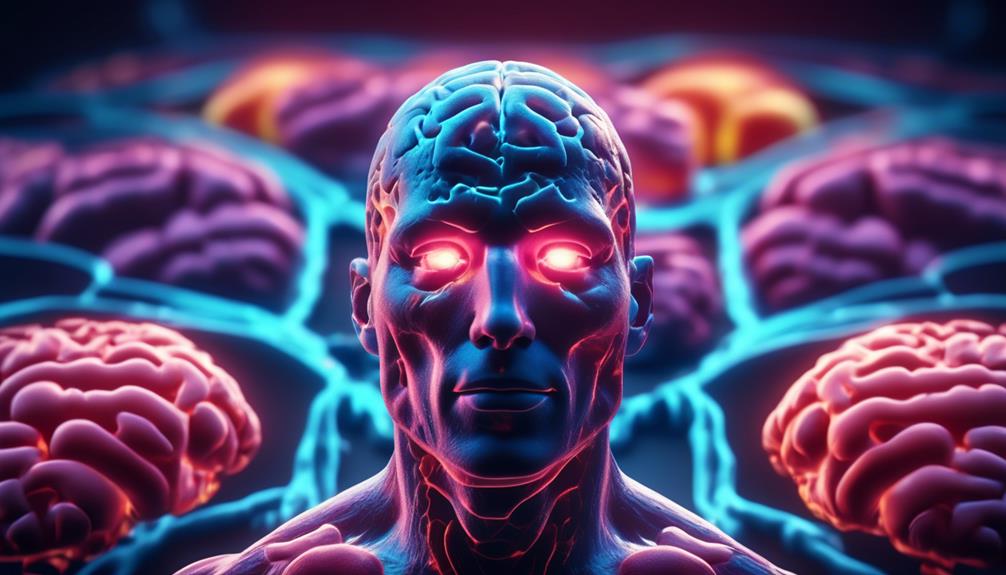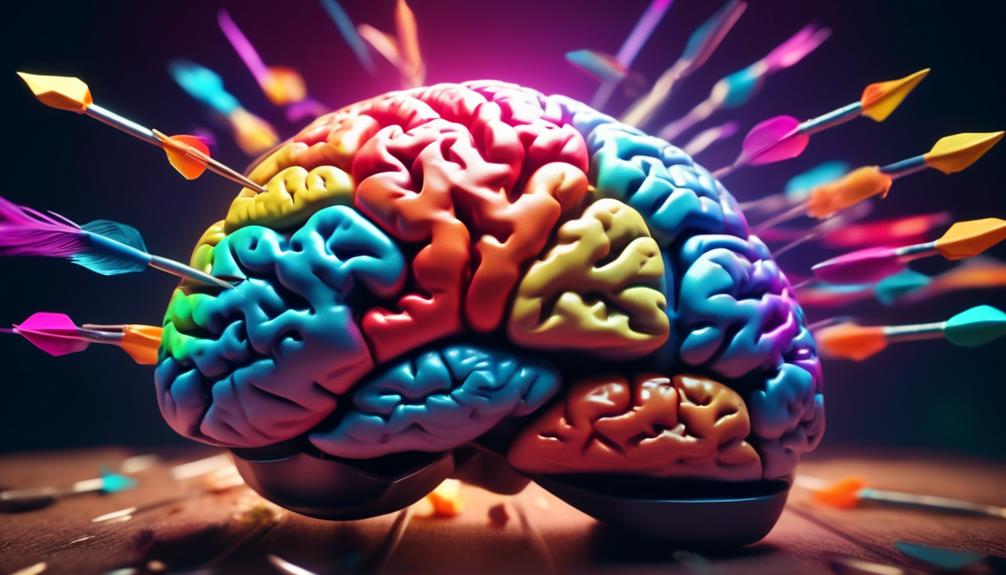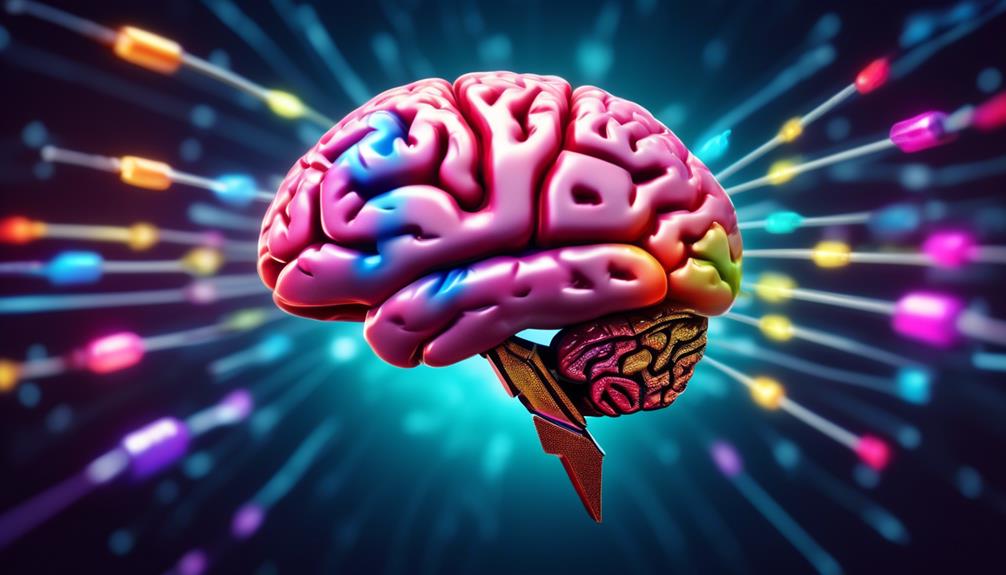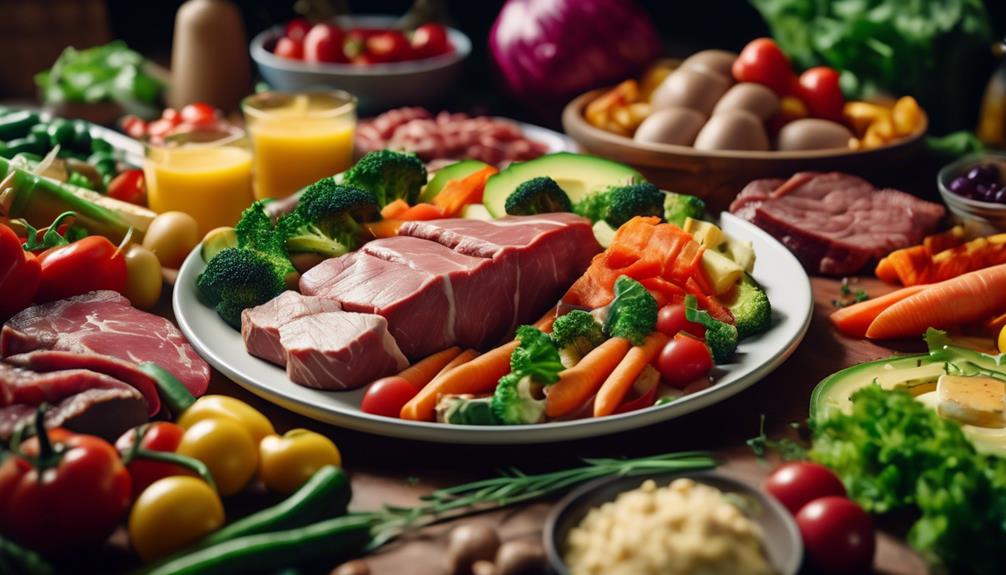Did you know that according to a recent study, individuals following a keto diet experience a significant decrease in cravings compared to those on a standard low-fat diet?
But why exactly do keto diets have this unique ability to suppress cravings?
In this discussion, we will explore the fascinating science behind ketosis and its impact on blood sugar levels, hunger hormones, healthy fats, insulin spikes, brain chemistry, and the role of ketones in appetite control.
By understanding these mechanisms, you'll gain valuable insights into why adopting a keto diet may be the key to finally conquering those persistent cravings and achieving your health goals.
So, let's dive in and uncover the secrets behind the effectiveness of keto diets in curbing cravings.
Understanding Ketosis

To truly understand ketosis, it's important to grasp the science behind this metabolic state and how it affects your body. Ketosis is a natural process that occurs when your body doesn't have enough carbohydrates to burn for energy. Instead, it starts breaking down fat for fuel, producing molecules called ketones. This shift in fuel source has several benefits, including weight loss.
When you enter ketosis, your body becomes highly efficient at burning fat. This can result in significant weight loss, as your body taps into its fat stores for energy. Additionally, ketosis can help suppress appetite and cravings. When you consume carbohydrates, they're converted into glucose, which spikes your blood sugar levels and triggers cravings. However, when you're in ketosis, your blood sugar levels remain stable, reducing cravings and helping you stick to your diet.
Moreover, ketosis can also increase satiety. When you eat a high-fat, low-carbohydrate diet, it helps you feel fuller for longer periods. This can prevent overeating and aid in weight loss. Additionally, ketosis has been shown to improve insulin sensitivity and reduce inflammation, which are both important factors in maintaining a healthy weight.
Impact on Blood Sugar Levels
When following a keto diet, one of the notable impacts is the effect on blood sugar levels. By significantly reducing carbohydrate intake, the body is forced to rely on fat for energy instead of glucose.
This shift in fuel source can lead to more stable blood sugar levels and reduced cravings.
Blood Sugar Regulation
Blood sugar regulation plays a crucial role in maintaining stable blood sugar levels throughout the day. When it comes to blood sugar spikes, a key factor to consider is insulin resistance. Insulin resistance occurs when the cells in your body become less responsive to the hormone insulin, which is responsible for regulating blood sugar levels. This can lead to higher blood sugar levels and an increased risk of developing type 2 diabetes.
However, a keto diet can help regulate blood sugar levels and improve insulin sensitivity. Here are three ways a keto diet can impact blood sugar regulation:
- By reducing carbohydrate intake, the body enters a state of ketosis, where it relies on fat for fuel instead of glucose. This can help stabilize blood sugar levels and reduce the risk of blood sugar spikes.
- The ketogenic diet promotes weight loss, which can improve insulin sensitivity and reduce the risk of insulin resistance.
- A keto diet encourages the consumption of healthy fats and proteins, which have a minimal impact on blood sugar levels compared to carbohydrates.
Cravings and Insulin
As we continue exploring the impact of a keto diet on blood sugar regulation, let's now shift our focus to the connection between cravings and insulin levels.
Cravings can be influenced by fluctuations in glucose levels, and insulin plays a crucial role in this process. When you consume carbohydrates, your body breaks them down into glucose, causing a spike in blood sugar levels. In response, your pancreas secretes insulin to help transport glucose into your cells for energy.
However, this insulin release can lead to a rapid drop in blood sugar levels, triggering cravings for more carbohydrates to replenish it.
Effect on Hunger Hormones

Following a ketogenic diet can have a significant impact on the regulation of hunger hormones in your body. When you adopt a keto lifestyle, here are three ways it affects your hunger hormones:
- Increased leptin sensitivity: Leptin is a hormone produced by fat cells that plays a crucial role in regulating appetite and energy balance. On a ketogenic diet, your body becomes more sensitive to leptin, which means it can effectively signal to your brain that you're full and suppress your appetite.
- Decreased ghrelin production: Ghrelin is known as the 'hunger hormone' because it stimulates appetite and promotes food intake. Studies have shown that a ketogenic diet can reduce ghrelin levels in the body, leading to a decrease in hunger and cravings.
- Stabilized blood sugar levels: When you consume carbohydrates, your blood sugar levels spike, causing a rapid release of insulin. This insulin surge can lead to a subsequent drop in blood sugar levels, triggering hunger and cravings. By following a keto diet that restricts carbohydrates, you maintain stable blood sugar levels, reducing the likelihood of experiencing intense hunger pangs.
Increased Satiety From Healthy Fats
When it comes to feeling full and satisfied, incorporating healthy fats into your diet can make a significant difference. Research shows that consuming foods high in healthy fats, such as avocados, nuts, and olive oil, can increase satiety and reduce the likelihood of overeating.
These fats take longer to digest, helping to keep you feeling fuller for longer and potentially decreasing cravings throughout the day.
Healthy Fats and Fullness
Incorporating healthy fats into your keto diet can increase feelings of fullness and enhance satiety. This is particularly beneficial for weight loss, as it helps to reduce hunger and cravings throughout the day.
When you consume healthy fats, such as avocados, nuts, and olive oil, they take longer to digest compared to carbohydrates. As a result, they provide a steady source of energy and keep you feeling satisfied for a longer period of time.
Additionally, healthy fats have been shown to have a positive impact on hunger hormones, such as ghrelin and leptin. Ghrelin is responsible for stimulating appetite, while leptin helps to regulate energy balance and suppress hunger.
Fat and Appetite Control
By including healthy fats in your keto diet, you can effectively increase feelings of fullness and enhance satiety, promoting better appetite control and reducing the likelihood of cravings.
Fat plays a crucial role in regulating appetite because it takes longer to digest compared to carbohydrates and protein. When you consume healthy fats, such as avocados, nuts, and olive oil, they trigger the release of hormones that signal your brain that you're full. This increased satiety helps to curb hunger and prevent overeating.
Studies have shown that ketogenic diets, which are high in healthy fats and low in carbohydrates, can significantly reduce hunger and cravings. In one study, individuals on a ketogenic diet reported feeling less hungry throughout the day compared to those on a low-fat diet.
Including healthy fats in your keto diet can therefore help you keep your appetite in check and support your weight loss goals.
Reduced Insulin Spikes and Cravings

Reduced insulin spikes on a keto diet can help alleviate cravings and promote better control of food intake. When you consume carbohydrates, your body releases insulin to help regulate blood sugar levels. However, this insulin response can also lead to hunger and cravings for more carbohydrates.
On a keto diet, where carbohydrate intake is significantly reduced, insulin spikes are minimized, resulting in several benefits for cravings and food intake control:
- Stable blood sugar levels: By reducing carbohydrate intake, your blood sugar levels remain more stable throughout the day. This stability helps prevent sudden drops in blood sugar, which can trigger cravings for sugary or high-carbohydrate foods.
- Improved satiety: A keto diet is high in fat and protein, which are known to be more satiating than carbohydrates. When you consume these macronutrients, you feel fuller for longer periods, reducing the frequency and intensity of cravings.
- Increased ketone production: On a keto diet, your body switches to using ketones as its primary source of energy instead of glucose. Ketones have been shown to have appetite-suppressing effects, helping to reduce food cravings.
Influence on Brain Chemistry
The ketogenic diet has the ability to influence brain chemistry, leading to potential changes in cravings and food preferences. This is primarily due to its impact on brain function and neurotransmitter regulation.
When you follow a keto diet, your body enters a state of ketosis, where it relies on ketones as its main source of energy instead of glucose. This shift in metabolism has been found to have various effects on the brain.
One key way in which the ketogenic diet influences brain chemistry is through its impact on neurotransmitters. Neurotransmitters are chemical messengers that play a crucial role in regulating mood, appetite, and cravings. Research has shown that the keto diet can affect the levels of neurotransmitters such as serotonin and dopamine, which are involved in reward pathways and pleasure sensations. By altering the balance of these neurotransmitters, the keto diet may help reduce cravings for high-carbohydrate and sugary foods.
Furthermore, the keto diet has been found to enhance brain function and cognitive performance. Studies have shown that ketones, the byproduct of fat metabolism during ketosis, can provide a more stable and efficient source of energy for the brain compared to glucose. This may result in improved mental clarity, focus, and overall brain health.
Role of Ketones in Appetite Control

Ketones play a significant role in controlling appetite on the ketogenic diet. When your body enters a state of ketosis, it starts producing ketones as an alternative fuel source to glucose. These ketones have been found to have appetite-suppressing effects, which can help you stay on track with your dietary goals.
Here are three ways in which ketones influence hunger and appetite:
- Increased satiety: Ketones have been shown to increase feelings of fullness and satiety, helping you feel satisfied after meals and reducing the urge to snack or overeat.
- Regulation of hunger hormones: Ketones can affect the production and release of hormones that regulate hunger, such as ghrelin and leptin. Ghrelin, often referred to as the 'hunger hormone,' stimulates appetite, while leptin helps to suppress it. Ketones have been found to decrease ghrelin levels and increase leptin levels, leading to reduced hunger.
- Improved blood sugar control: The ketogenic diet promotes stable blood sugar levels, which can help regulate appetite. When blood sugar levels are stable, you're less likely to experience sudden spikes and crashes that can trigger cravings and overeating.
Conclusion
In conclusion, the keto diet is like a superhero for suppressing cravings. It swoops in and puts our hunger hormones in check, thanks to the magical powers of ketosis. By keeping our blood sugar levels stable and reducing insulin spikes, it saves us from succumbing to those pesky cravings.
Plus, with the help of healthy fats, it keeps us feeling full and satisfied. So, if you're looking to conquer your cravings, the keto diet might just be your secret weapon.







